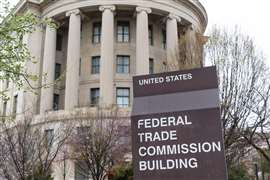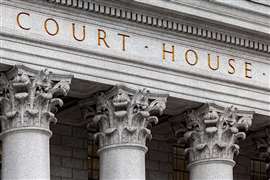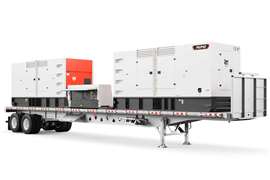Read this article in Français Deutsch Italiano Português Español
Texas court blocks FTC noncompete ban
28 August 2024
The legal wrangling over the U.S. Federal Trade Commission’s (FTC) ban on noncompete agreements hit a milestone on Aug. 20. That’s when the U.S. District Court for the Northern District of Texas issued a summary judgement blocking the ban in the case of Ryan LLC v. Federal Trade Commission. In its ruling, the court said the ban “shall not be enforced or otherwise take effect on its effective date of September 4, 2024 or thereafter.”
 Photo: Alamy
Photo: Alamy
The court’s opinion said FTC described noncompete clauses as “unfair methods of competition” and asserted it had the authority to issue the ban. However, the plaintiffs in the lawsuit argued the noncompete rule exceeded FTC statutory authority. Several plaintiff intervenors — those who joined the suit in support of Ryan LLC’s claim — similarly argued that FTC did not have the authority to impose such a ban.
In a client advisory that was sent following the ruling, the trade secrets, restrictive covenants and unfair competition practice group at law firm Benesch, led by chair and partner Scott Humphrey, said that “the Texas Court determined that the rule exceeded the FTC’s authority and, as such, was an illegal attempt to expand the FTC’s rulemaking authority beyond its traditional consumer protection regulations. The Texas court rubbed additional salt into FTC’s wound by also finding that the rule was arbitrary and capricious.”
In a press release, Dallas, Texas-based tax services provider Ryan LLC, the plaintiff in the case, called the ban a “misguided mission” of FTC. “Noncompetes serve as a cornerstone of mutual trust between employer and employee,” he said.
John Smith, Ryan’s chief legal officer and general counsel, added that the ruling “preserves the economic freedom of businesses and their employees to enter into noncompete agreements. They play a vital role in safeguarding intellectual property and innovation, building trust within businesses and investing in training their people.”
Victoria Graham, a spokesperson for FTC, told Power Progress via email, “We are disappointed by Judge [Ada] Brown’s decision and will keep fighting to stop noncompetes that restrict the economic liberty of hardworking Americans, hamper economic growth, limit innovation and depress wages. We are seriously considering a potential appeal, and today’s decision does not prevent the FTC from addressing noncompetes through case-by-case enforcement actions.”
An appeal would be adjusticated by the U.S. Court of Appeals for the Fifth Circuit, the Benesch advisory said.
The U.S Chamber of Commerce — one of four plaintiff intervenors — called the ruling a victory in an update on the case on its website.
“This decision is a significant win in the chamber’s fight against government micromanagement of business decisions,” said Suzanne P. Clark, president and CEO. “A sweeping prohibition of noncompete agreements by the FTC was an unlawful extension of power that would have put American workers, businesses and our economy at a competitive disadvantage.”
Plaintiff intervenor Business Roundtable, which is an association of over 200 CEOs, told Power Progress through a spokesperson via email that it “applauds the court’s decision striking down the FTC’s ban on noncompete agreements. As the court concluded, the FTC exceeded its statutory authority. Overreaching regulation threatens businesses of all sizes.”
Business Roundtable members include John May, chair and CEO of John Deere, Jennifer Rumsey, chair and CEO of Cummins and Jim Umpleby, chair and CEO of Caterpillar.
The Texas Association of Business (TAB), which serves as the chamber of commerce for the state of Texas and was another plaintiff intervenor, signaled in a press release that the legal fight was not yet over.
“As this legal battle continues, TAB remains committed to protecting the interests of Texas businesses,” the association said. “The fight against the FTC’s overreach is not just about noncompete agreements; it’s about ensuring that federal agencies do not exceed their statutory authority and that businesses can operate without the threat of capricious and harmful regulations.”
Similar court cases in Florida and Pennsylvania remain pending. In Pennsylvania on July 23, the federal court denied the plaintiffs in ATS Tree Services, LLC v. Federal Trade Commission, et al. an injunction against the effective date of the FTC rule, saying — unlike the Texas court — the FTC likely did have the authority to make the rule. In Florida on Aug. 14, however, plaintiffs in Properties of the Villages, Inc. v. Federal Trade Commission were granted a stay of the effective date.
Regarding FTC’s chances of seeing the block on the noncompete rule overturned on appeal, the Benesch client advisory was not optimistic.
“The FTC is unlikely to find any friends on the Fifth Circuit, as the Fifth Circuit has developed a reputation for striking down administrative actions/policies/orders brought by President Biden’s administrative agencies,” it said.
POWER SOURCING GUIDE
The trusted reference and buyer’s guide for 83 years
The original “desktop search engine,” guiding nearly 10,000 users in more than 90 countries it is the primary reference for specifications and details on all the components that go into engine systems.
Visit Now
STAY CONNECTED




Receive the information you need when you need it through our world-leading magazines, newsletters and daily briefings.
CONNECT WITH THE TEAM














